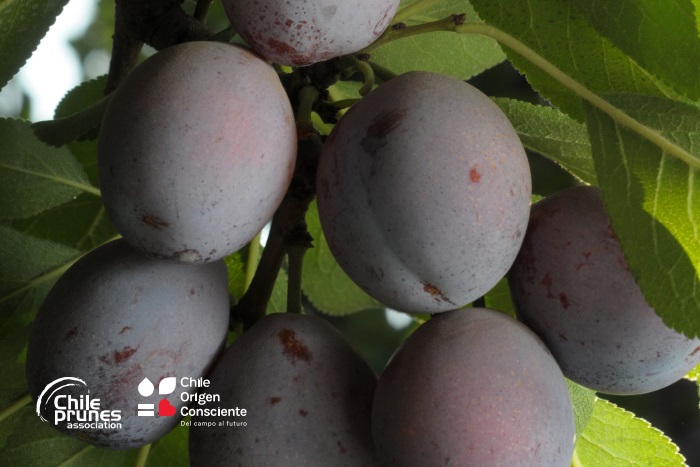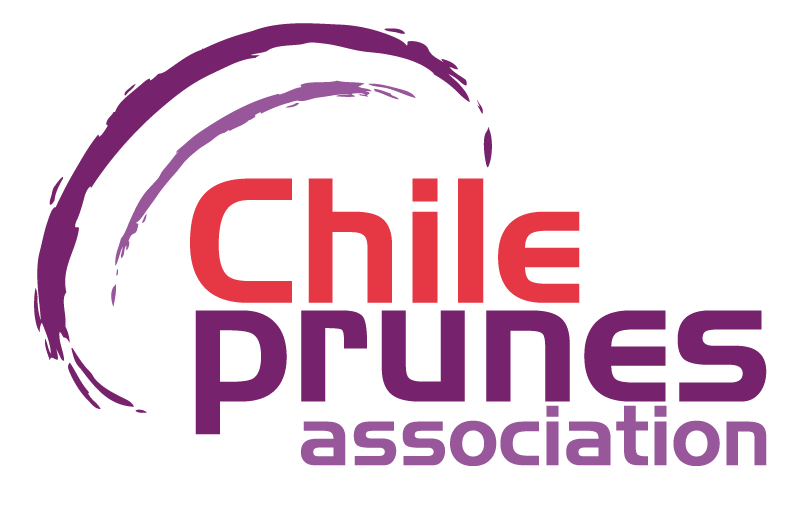Four years since it was defined to establish a sustainability standard for the Chilean prune industry.
It has been a very collaborative period involving the public and private sectors with more than 600 actors from the industry, not only companies and their suppliers but also government and academic entities.
Recently, at Expo Ciruelas Secas (Expo Prunes) 2025, Chileprunes executive director Pedro Acuña mentioned that it had been put in place a certification that guarantees that the product has been grown under standards that combine quality with sustainability, distinguishing the Chilean prune in international markets. This sustainable quality standard has two levels: certification for processing plants and certification for orchards.
What improvements have taken place in the last months?
There has been a very important improvement in the implementation of the sustainability standard for agro-industrial plants, known as APL for facilities. Now a days, there are 10 agro industrial companies adhered to the process.
These companies have made a self-diagnosis which has allowed them to be aware of their current situation regarding the certification. Some already meet the basic requirements while others are very close to achieve them. All of them are in the process of including new sustainable practices with the goal of being audited and to get the certification by the end of the year.
It is worth mentioning that the adhesion process is still open for all the agro-industrial companies including those devoted to the drying, calibration, tenderizing parts of the process.
According to IICA, (Instituto Interamericano de Cooperación para la Agricultura) one of the main initiatives has been the development of a digital platform with a virtual agent based on artificial intelligence which will allow the companies to make questions about the standard, its certification and the monitoring of their sustainable actions. This platform is now in pilot phase in a group of primary production and agro-industrial adequacy companies and hopefully by March it will be available for every interested company.
We have been also told that this stage has not been without difficulties: “One of the main challenges has been to address the issue of the heterogeneity of the universe of the primary sector production companies. These companies are very numerous and have big differences in their technologies which has demanded the adaptation of the standard to a modality that allows the certification of big companies as well as small companies. This has been a main concern of this year work”, they say at IICA.
It is very fundamental to reiterate the importance of this road towards sustainability, a bet that wants to incorporate responsible practices and, at the same time, show the sustainable commitment for the final consumers.
To achieve this, it is key that the plants as well as the orchards obtain this certification because only then a final product with a hallmark, a sustainable label that can identify it clearly in the market will be obtained.
Finally, it is important to highlight that the main focus of this new stage are innovation and digitalization. It is expected that the certification and auditing processes, that are often complex due to the amount of paperwork, will be simplified through more modern digital strategies in accordance with the real needs of the company.
This initiative is framed within the program Chile Origen Consciente (Chile Conscious Origin) and has been developed by Chileprunes together with IICA, (Instituto Interamericano de Cooperación para la Agricultura) ASCC (la Agencia de Sustentabilidad y Cambio Climático) y ODEPA, (Oficina de Estudios y Políticas Agrarias).
The process of this certification started in 2021, in the mist of the pandemic, with the articulation of work teams and strategic alliances. Then, during 2022 and 2023 progress was made in the creation of the sustainability standard, validating key actors and establishing a Clean Production Agreement. During 2024 the project structure was consolidated and in 2025 the implementation of the standards began.
“We export to more than 80 markets and we must adapt to an increasingly demanding environment in terms of sustainability. This certification is a key tool to show our commitment and to add value to our fruit”, concludes Pedro Acuña.
For more information the companies can visit the web site www.ciruelacertificada.cl and start their certification process.



